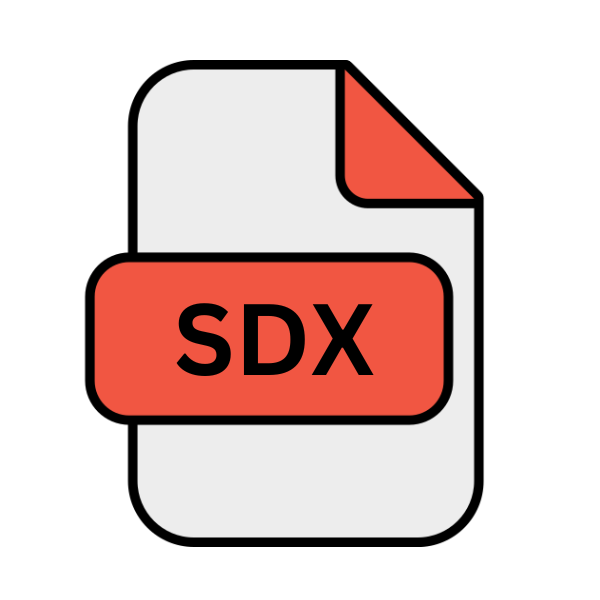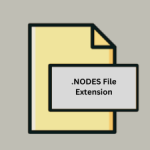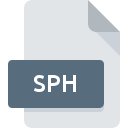.SDX File Extension

Sample MIDI Dump Exchange
| Developer | N/A |
| Popularity | |
| Category | Audio Files |
| Format | .SDX |
| Cross Platform | Update Soon |
What is an SDX file?
In the realm of digital music production, file formats play a crucial role in storing and exchanging musical data. One such format that has gained significance, especially in the MIDI (Musical Instrument Digital Interface) domain, is the .SDX file extension, which stands for Sample MIDI Dump Exchange.
These files encapsulate a wealth of musical information, making them invaluable assets for musicians, producers, and enthusiasts alike.
More Information.
The .SDX file format was conceived with the primary aim of simplifying the transfer of MIDI sample data. Samples, in the context of music production, refer to recorded sounds of musical instruments or other audio sources. These samples are often used to create realistic instrument sounds in digital music compositions.
Prior to the widespread adoption of .SDX files, transferring MIDI sample data between devices and software platforms was often cumbersome and error-prone.
Different manufacturers utilized proprietary formats, leading to compatibility issues and interoperability challenges. The introduction of the .SDX format sought to address these issues by providing a standardized, platform-independent solution for exchanging MIDI sample data.
Origin Of This File.
The concept of Sample MIDI Dump Exchange traces its roots back to the evolution of MIDI technology in the late 20th century. MIDI, initially developed in the early 1980s, revolutionized the way electronic musical instruments communicated with each other and with computers.
MIDI data allowed for the transmission of various musical parameters such as note pitch, velocity, and duration, enabling seamless integration between different hardware and software components of a music setup.
As digital music production advanced, the need arose for a standardized format to exchange MIDI data efficiently.
This led to the creation of the Sample MIDI Dump Exchange (.SDX) file format, designed specifically for the exchange of MIDI sample data between different devices and software applications.
File Structure Technical Specification.
The .SDX file format follows a structured layout optimized for storing MIDI sample data efficiently. At its core, an .SDX file contains a collection of MIDI messages that describe the characteristics of sampled sounds.
These messages include note-on and note-off events, velocity values, pitch information, and other parameters relevant to the playback of sampled audio.
In addition to MIDI messages, .SDX files may also include metadata such as sample names, loop points, and other descriptive information to facilitate the organization and retrieval of sample data.
From a technical standpoint, .SDX files adhere to the MIDI specification, ensuring compatibility with a wide range of MIDI-enabled devices and software applications.
This adherence to industry standards promotes interoperability and simplifies the integration of .SDX files into diverse music production workflows.
How to Convert the File?
Converting .SDX files can be a bit more complex than typical file conversions because .SDX files are not widely supported by standard MIDI conversion tools. There are still methods you can try:
1. Using MIDI Sequencing Software:
- Open MIDI sequencing software such as Cubase, Ableton Live, or FL Studio.
- Import the .SDX file into the software.
- Once imported, you may need to manually extract the MIDI data from the .SDX file.
- Export the extracted MIDI data into a standard MIDI file format (e.g., .MID).
- The exported MIDI file can then be used or converted further using standard MIDI conversion tools.
2. MIDI Sample Library Software:
- Some MIDI sample library software may have built-in functionality to import and convert .SDX files.
- Check if the software you have supports .SDX file import.
- If supported, follow the software’s instructions to import and convert the .SDX file to a compatible format.
3. Contacting Manufacturer Support:
- If the .SDX file is associated with a specific MIDI device or software, reach out to the manufacturer’s support team.
- Inquire if they provide any tools or methods for converting .SDX files to other formats.
- They may offer specialized software or guidance on how to handle .SDX files effectively.
4. Manual Conversion (Advanced):
- If you have programming or scripting skills, you may attempt a manual conversion.
- Analyze the structure of the .SDX file and identify the MIDI data within it.
- Write a custom script or program to extract the MIDI data and convert it into a standard MIDI file format.
- This method requires a deep understanding of MIDI file structures and may not be feasible for all users.
5. Online Forums and Communities:
- Search online forums or communities dedicated to MIDI and digital music production.
- Other users may have encountered similar conversion challenges and may offer insights or solutions.
- You may find recommendations for specialized tools or alternative methods for converting .SDX files.
6. Seeking Professional Services:
- As a last resort, consider seeking assistance from professional audio engineers or music producers.
- They may have access to specialized tools or expertise to handle .SDX file conversion.
- Be prepared to pay for their services, especially if the conversion requires custom development or extensive manual work.
Advantages And Disadvantages.
Advantage:
- Standardization: By providing a standardized format for exchanging MIDI sample data, .SDX files eliminate compatibility issues and promote interoperability between different hardware and software platforms.
- Efficiency: .SDX files are optimized for efficient storage and transmission of MIDI sample data, allowing for faster loading times and reduced file sizes compared to proprietary formats.
- Flexibility: The structured nature of .SDX files enables users to organize and manipulate MIDI sample data with ease, facilitating creative experimentation and customization.
Disadvantage:
- Limited Support: While .SDX files enjoy widespread support among MIDI-compatible devices and software applications, there may still be instances where certain platforms or applications do not fully support the format, leading to compatibility issues.
- Complexity: Working with .SDX files may require a certain level of technical expertise, particularly in understanding MIDI concepts and file structures. Novice users may find the learning curve steep when dealing with .SDX files for the first time.
How to Open SDX?
Open In Windows
To open .SDX files in Windows, you can use various software applications like MIDI Converter Studio or Awave Studio.
These programs allow you to convert .SDX files to other MIDI-compatible formats like WAV, MP3, or even other MIDI formats.
Open In Linux
On Linux systems, you can utilize command-line tools such as TiMidity++ or FluidSynth to convert .SDX files to MIDI or other compatible formats. These tools offer flexibility and can be used directly from the terminal.
Open In MAC
For macOS users, software applications like Logic Pro or GarageBand can be used to open .SDX files. These programs support MIDI file conversion and offer a range of features for music production and editing.
Open In Android
On Android devices, you can use mobile apps like FL Studio Mobile or Caustic to open .SDX files. These apps provide a mobile-friendly interface for music production and support MIDI file conversion.
Open In IOS
iOS users can utilize apps like GarageBand or Cubasis to open .SDX files on their devices. These apps offer professional-grade music production features and support MIDI file conversion.
Open in Others
For other platforms or specialized use cases, you can explore online conversion services that allow you to upload .SDX files and convert them to desired formats through a web interface.
These services offer convenience and accessibility, especially for users who prefer to work online or on platforms not covered by traditional software applications.













